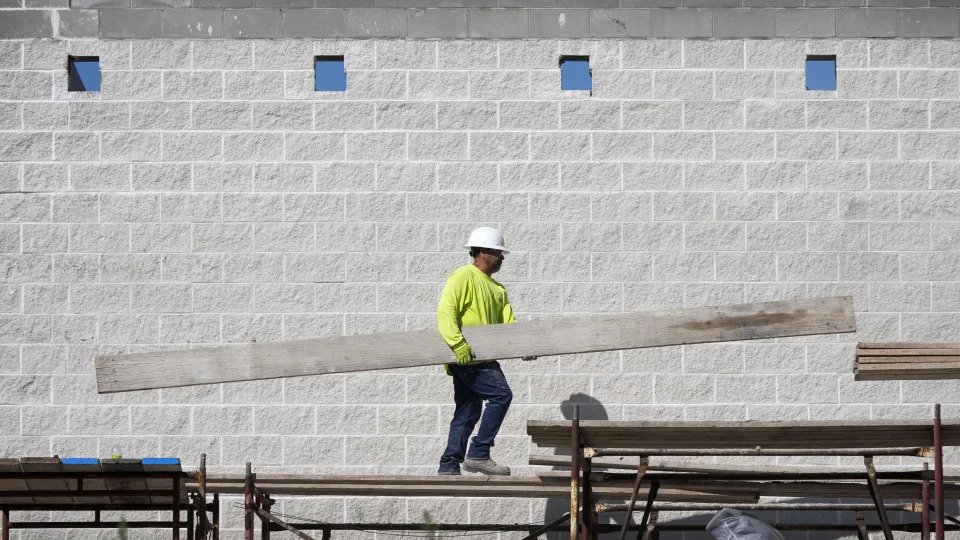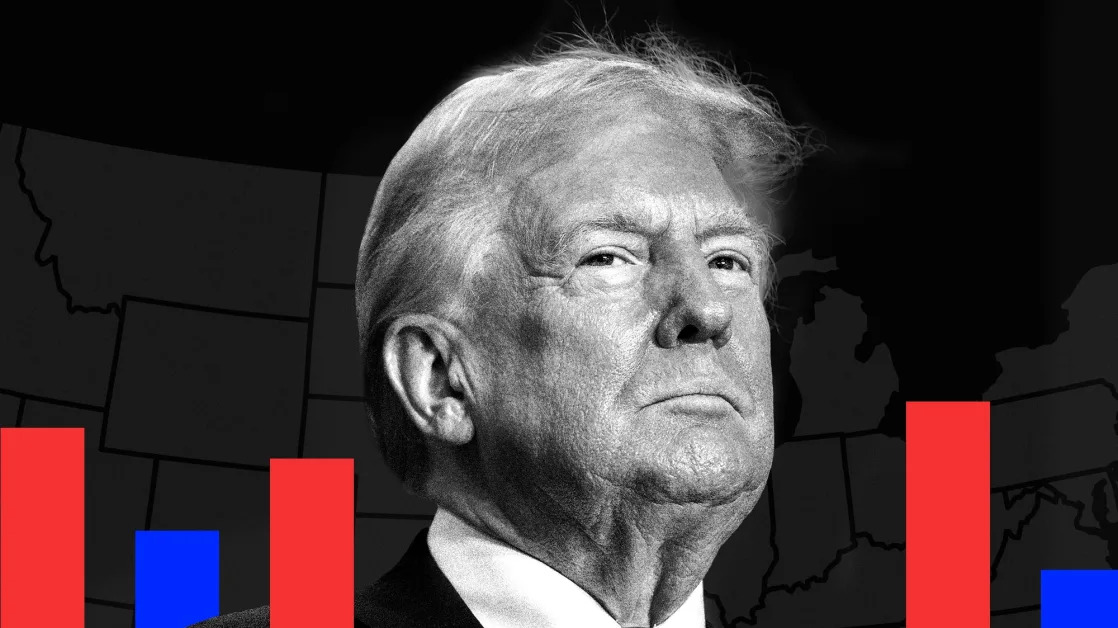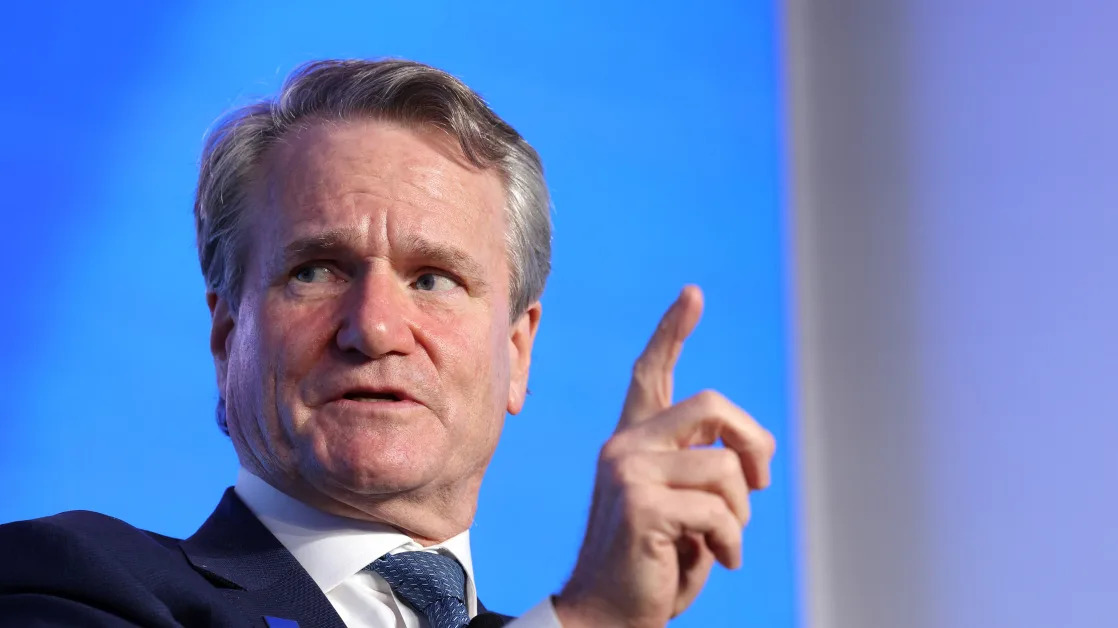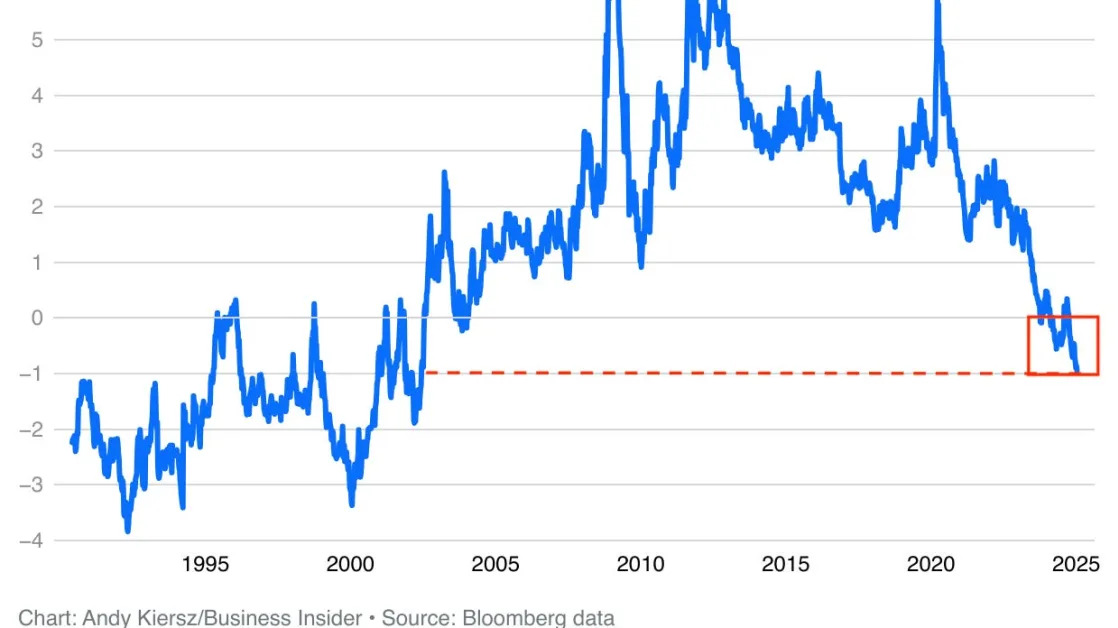The post-COVID economy has generated several anomalies. Here’s the latest: Americans seem to prefer a cooling economy over a hot one.
As expected, the job numbers for August show a slowdown in hiring. Employers added 142,000 new jobs in August, and the numbers for June and July were revised lower. During the last three months, job gains averaged just 116,000 per month. The monthly average was 251,000 in 2023 and a sizzling 377,000 in 2022.
Job openings, meanwhile, have dropped from a peak of 12.2 million in 2022 to 7.7 million, a stark downward trend . The labor market deceleration is unmistakable.
You might think this is making Americans nervous about layoffs, difficulties finding a new job, and a recession. But Americans are growing cheerier. “The vibecession is ending,” Oxford Economics declared on Sept. 6. “After a period of downbeat sentiment on the economy dubbed by some the ‘vibecession,’ consumers’ and firms’ assessment of future conditions are now brightening.”
The University of Michigan sentiment index is ticking upward, as is the Conference Board’s confidence index . Federal Reserve surveys show that manufacturing firms are more upbeat about future conditions than they were a year ago. Services firms have better revenue expectations than they did a year ago, as well. Capital spending is holding up and the outlook for future spending is for more, not less.
The economy has been schizophrenic since 2022 because of one unusual scourge: inflation. We’ve had inflation before, needless to say, but when inflation hit 9% in June 2022, it was the first serious bout of economy-wide price hikes in 40 years. Two generations of Americans had never seen anything like it, and those who had forgot how painful it can be.
With inflation now back down to 2.9% — almost in the normal zone — it seems safe to say the spurt in prices was a temporary phenomenon related to COVID-era distortions and massive amounts of fiscal and monetary stimulus that juiced spending. But it’s taking a while for the shock to wear off. If the vibecession is really ending, it’s probably because consumers see food and rent prices stabilizing and they’re starting to believe it will stay that way.

If you’re Vice President Kamala Harris, the Democratic presidential nominee, this is almost a Goldilocks scenario. The economy is still growing, and even though job growth is cooling, unemployment remains low. The Federal Reserve, finally comfortable that inflation is on the run, is clearly going to start a gradual series of interest rate cuts in a couple of weeks. The Fed has telegraphed this, boosting consumer hopes that mortgages, car loans, and other types of borrowing are about to get cheaper.
Even better: Gasoline prices are down $0.50 from a year ago, to a manageable $3.30 per gallon. Some analysts think they could drift below $3 by the end of the year , which would be a gift to any incumbent running for reelection.
And yet … something seems off. The Fed isn’t about to start cutting rates because happy days are here again. It’s about to start cutting because it’s a little bit worried that job growth will slow too much and a recession will develop.
Drop Rick Newman a note , follow him on X , or sign up for his newsletter .
The economy can still grow if job growth averages a tepid 100,000 per month or so, which is even lower than the current average. But it’s also true that job growth tends to slow a little right before it slows a lot.
As for gasoline prices, they’re dropping now because of weak energy demand in China and ample global oil supplies. But gas prices almost always drop when the economy tightens up, because people pinch pennies and drive less. That’s why recessions are great for people who drive a lot — as long as you don’t lose your job.
Many economists think we’re in a soft landing scenario, which means inflation and interest rates can continue to come down while the economy keeps growing. But there are skeptics. Economist David Rosenberg of Rosenberg Research wrote on Sept. 6 that there are “recession thumbprints all over the August jobs report.” He points out that job quality is declining, the number of multiple job holders is going up, and methodological flaws in the government’s survey conceal other weaknesses.
One thing that seems clear is that the job growth and perhaps the overall economy will be weaker when the next president takes office in January. Will voters sniff that out by Election Day? By Inauguration Day? Maybe not, if the price of chicken, chocolate, and a tank of gas are what they’re paying most attention to. But once they put inflation out of their minds, other danger signs may start to appear.
Rick Newman is a senior columnist for Yahoo Finance . Follow him on X at @rickjnewman .
.





